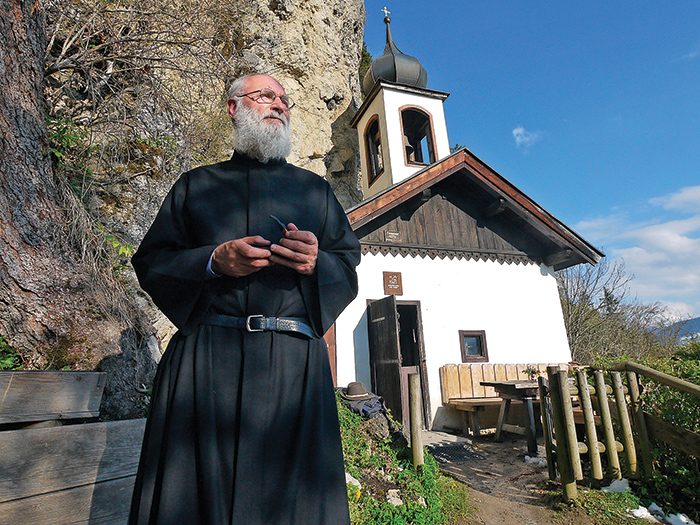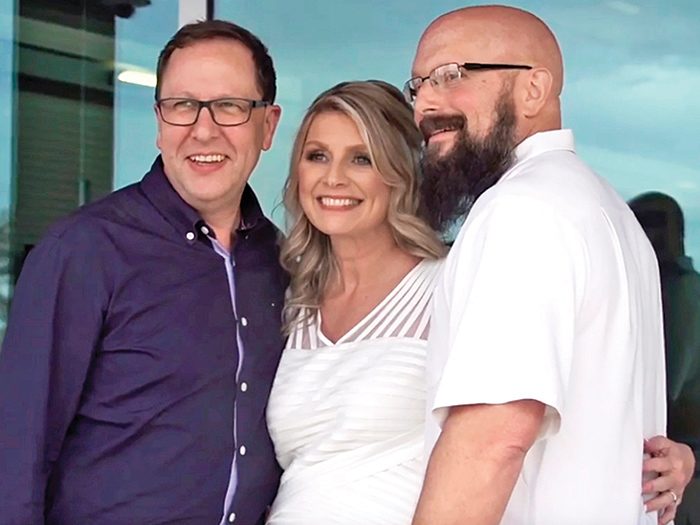Good News
Some of the positive stories coming our way

Alone at last!
Society After months of searching, the Austrian town of Saalfelden has finally filled a vacant post: the job of hermit at an isolated 350-year-old hermitage built into a cliff high above the town.
When it advertised the vacancy, it received applications from all around the world. The winner was Stan Vanuytrecht (pictured), a 58-year-old Belgian retiree and Catholic deacon, who now lives the hermit life he dreamed of—without heating, running water, internet access or a salary.
Saalfelden’s mayor says Vanuytrecht was chosen because he “radiates calm and comes across as well-anchored”. He will be able to share his grounded qualities with hikers, who come to admire the view and sometimes confide in the hermit.
“It’s important just to listen without talking oneself and without judging,” says Vanuytrecht, who in the past has counseled the homeless, drug addicts, prisoners and psychiatric patients.
His predecessor left after just one summer and had faced criticism from arch-conservative Catholics because he didn’t sport a habit or a beard. Vanuytrecht has both.
Locusts for lunch
Food Insects are now officially on the menu in Switzerland, thanks to a new law that allows the sale of food products containing mealworms, locusts and crickets.
An estimated two billion people around the world include insects in their diet, but they rarely feature on European shopping lists. However, this ecologically sound development is gaining acceptance—other countries such as the UK, France, the Netherlands and Belgium are also allowing the sale of edible insects.
Insects contain as much protein as meat and fish and are rich in essential vitamins and minerals. They use less water, land and emit less greenhouse gases than cattle.
Swiss supermarket Coop plans to sell burgers and meatballs containing mealworms in 100 branches. “We’re convinced there’s a real demand for this culinary speciality,” says spokeswoman Angela Wimmer.
Making seawater drinkable
Science Scientists at Manchester University have invented a sieve that can remove salt from seawater. Their method uses graphene oxide, which is attached to a porous material, creating a membrane. The next step is to discover if the technique can be applied on an industrial scale.

A special wedding guest
Heroes When German insurance executive Johann Beissel (pictured, on left) gave a mouth swab during a drive for potential bone marrow donors at his local hospital, little did he suspect the consequences.
On the other side of the world, in Houston, Texas, leukemia patient Larry Wilson was told he needed a bone marrow transplant to survive, but none of his family members were matches. Then it was discovered that Beissal’s bone marrow matched his. The tissue was flown to Texas and Wilson survived. The men are now best friends. “When I met him for the first time, it was like coming home,” says Beissal, who was a special guest at Wilson’s wedding this summer. “You’re the reason I’m here,” Wilson told him at the ceremony. “And we’re brothers. We are officially brothers.”
Sources: Society: The Guardian, 19.4.2017. Food: The Local (Switzerland), 1.5.2017. Science: BBC News, 3.4.2017. Heroes: USA Today, 13.4.2017



